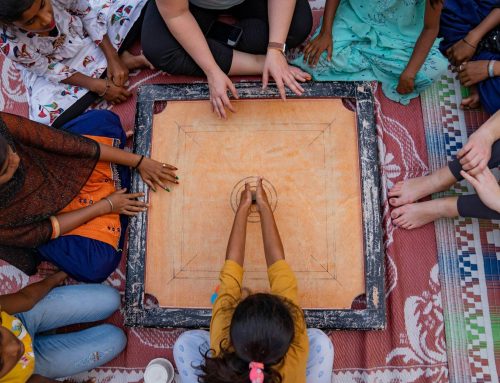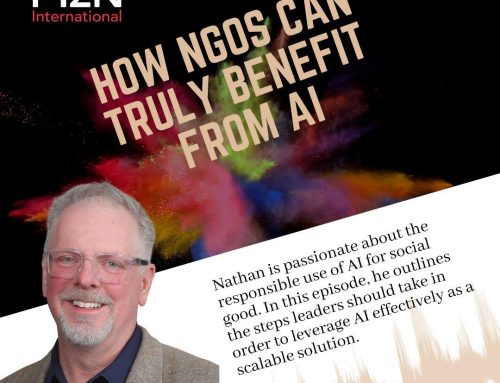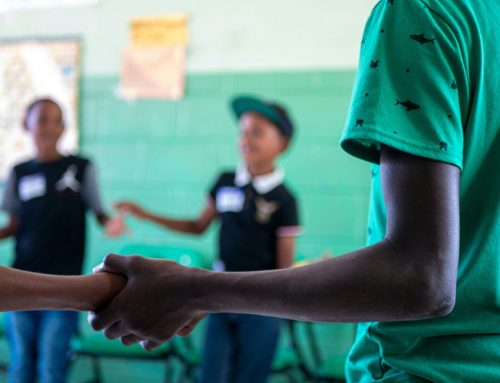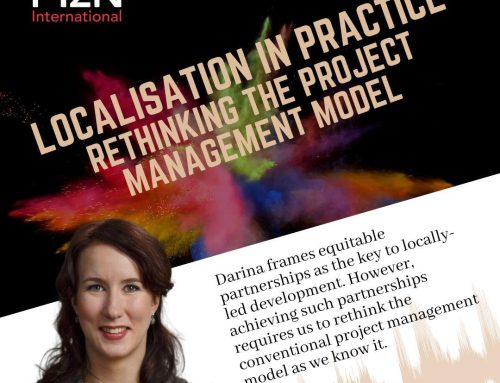Leading Donors Shaping the Landscape in 2023
The International Organization for Migration (IOM) defines a migrant as an individual who has moved across an international border or within a state away from their usual place of residence. According to the UNHCR, as of mid-2023, approximately 110 million people have been forcibly displaced globally due to persecution, conflict, violence, human rights violations, or events severely disrupting public order. Among them, 5.3 million individuals are in need of international protection. Notably, 52% of the displaced population originates from just three countries:
- Syrian Arab Republic: 6.5 million
- Afghanistan: 6.1 million
- Ukraine: 5.9 million
In 2022, the International Organization for Migration published a report (see below) that included regional migration data up to the middle of 2020.

The UNHCR also reveals that in 2023, the Islamic Republic of Iran and Turkey each accommodated 3.4 million each which is the largest refugee populations globally. Germany followed closely, ranking third with 2.5 million refugees, followed by Colombia with just under 2.5 million individuals, including those seeking international protection. Pakistan provided refuge for 2.1 million displaced persons. Against the backdrop of ongoing crises in regions like the Middle East, Ukraine, South Sudan, Afghanistan, Myanmar, and several other countries in Asia and Africa, the migration crisis is intensifying. This escalation is anticipated to lead to a significant increase in the number of migrants and refugees. Consequently, addressing the challenges associated with the migration crisis has become of paramount importance.
Various organizations and foundations have recognized the urgency of this issue and are actively providing grants to civil society organizations. These grants aim to support initiatives addressing migration-related challenges, offering humanitarian aid, and promoting the well-being and integration of displaced populations. The collaboration between grant-giving entities and civil society organizations is crucial for an effective response to the evolving migration crisis, ensuring that the needs of vulnerable populations are met. The following is a compilation of donors offering grants to civil society organizations (CSOs) and non-governmental organizations (NGOs) engaged in activities within the migration sector.
1. International Organization for Migration (IOM) Development Fund


The International Organization for Migration (IOM) stands as the foremost intergovernmental entity operating within the realm of migration, firmly dedicated to the principle that the humane and well-structured facilitation of migration is advantageous not only to migrants themselves but also to the broader society. It is essential to note that IOM is integrated into the United Nations system, operating as a closely associated organization.
IOM is unwavering in its mission to provide comprehensive support to migrants on a global scale, striving to formulate effective strategies to address the evolving dynamics of migration. Moreover, IOM actively engages in addressing emergency situations, concentrating on enhancing the resilience of individuals in transit, particularly those who find themselves in vulnerable circumstances.
The IOM Development Fund has earmarked a substantial budget of USD 161 million, which is being dispersed across more than 1000 projects located in 125 countries across the globe. These projects are strategically designed to target and enhance distinct facets of capacity development related to the management of migration.
In the year 2022, an allocation of more than USD 16 million was made accessible for the purpose of project distribution, further contributing to the fund’s overarching objectives.
To receive more information about the organization please visit the website.
To get more information about the call for proposals please click on the link.
2. USAID’s Bureau for Humanitarian Assistance (BHA)


USAID’s Bureau for Humanitarian Assistance (BHA) delivers life-saving humanitarian aid, including food, water, shelter, emergency medical attention, sanitation and hygiene, and vital nutrition programs. BHA approaches humanitarian help holistically, offering support prior to, during, and following a crisis—from preparedness and reaction to relief and rehabilitation. This covers non-emergency programming, which is essential for establishing a connection between long-term development and the process of becoming self-sufficient for the migrants and refugees.
To know more about the grant please visit the link.
To search for grant opportunities please click on the link.
3. United Nations High Commissioner for Refugees: Innovation Service


The Fund encourages creativity among all groups headed by those who have personally experienced forced relocation, such as stateless persons, refugees, asylum seekers, internally displaced people, and returnees.
Candidates are expected to apply in groups, typically as a member of an already-existing organization. Applications from both registered and unregistered groups are recognised by the Fund. preference will be given to the groups headed by women, people with disabilities, LGBTIQ+ individuals, and other marginalized groups are supported and encouraged to apply to the Fund.
To receive more information about the grant and to apply for the grant please visit the website.
4. Asylum, Migration and Integration Fund (AMIF) (European Commission)

The Asylum, Migrant, and Integration Fund (AMIF) facilitates the efficient management of migrant flows and the development of a unified European Union strategy for asylum and integration. It upholds high standards of accountability and solidarity among Member States, with a particular focus on those most affected by migration. AMIF aims to strengthen the European asylum system, support legal migration and integration, counter irregular migration, and promote solidarity and responsibility sharing among Member States. Eligible applicants include various entities such as state authorities, NGOs, and research institutions. The target groups include new arrivals, asylum seekers, beneficiaries of temporary international protection, refugees, and migrants in regular residence situations.
To receive more information about the grant please visit the website.
To get more information about the call for proposals please click on the link.
5. Robert Bosch Stiftung


The Robert Stiftung Foundation, under their "Global Issues" support area, is dedicated to fostering peaceful coexistence worldwide which includes the development and integration of migrants in Europe and worldwide. Through this program, they aim to tackle the fundamental social challenges of the current time. This commitment reflects a proactive approach to creating positive change on a global scale. Under the Global Issues program Foundation has 6 main objectives:
- Climate Change
- Democracy
- Immigration Society
- Inequality
- Migration
- Peace
To receive more information about the Foundation please visit the link.
To get more information about the call for proposals please visit the link.
6. UNHCH (The UN Refugee Agency)


UNHCR is a global entity committed to preserving lives, safeguarding rights, and fostering a brighter future for individuals compelled to leave their residences due to conflict and persecution. The organization offers critical aid, encompassing shelter, sustenance, water, and medical support, catering to those without alternatives. UNHCR vigorously upholds their entitlement to seek refuge, aiding them in discovering a place to establish roots and reconstruct their lives. In the broader perspective, UNHCR collaborates with nations and civil society organizations to refine and oversee laws and policies pertaining to refugees and asylum, ensuring the protection of fundamental human rights and to provide refugees safe homes.
To get more information about the call for proposals please visit the link.
7. The Papal Foundation


The Papal Foundation's grants encompass a diverse array of parishes, dioceses, and organizations across the globe. Their primary areas of focus revolve around the following themes: (1) education and schooling, encompassing infrastructure support and education technology; (2) health and medical services, involving infrastructure support, supply, and equipment; (3) churches and seminaries; and (4) humanitarian support, including economic empowerment, community development, social inclusion, refugee and migrant support, among others. Annually, the Foundation allocates approximately 2,000 grants to projects spanning over 100 countries globally. The organization mostly funds the catholic churches/organizations.
To receive more information about the grant please visit the website.
8. Comic Relief


"A Safe Place to Be" is a Comic Relief initiative that has provided support to organizations and partnerships dedicated to assisting refugees in finding secure locations. Over the past three years, the funded organizations have aided mobile refugees through grassroots strategies, advocated for policy and legislative changes, and aimed to alter public perceptions regarding migration.
To receive additional information about the grant application process please visit the link.
To know more about Comic Relief please visit the website.
9. Abdul Aziz Al Ghurair Refugee Education Fund


The management of the Abdul Aziz Al Ghurair Refugee Education Fund falls under the purview of the Abdulla Al Ghurair Foundation for Education (AGFE). Through a competitive selection procedure, the fund allocates grants to entities engaged in direct initiatives for refugee and conflict-affected children and youth within the United Arab Emirates, Lebanon, and Jordan. Operating with an impact-centric strategy, the fund places importance on collaborative partnerships, actively engaging in capacity-building with partners, adapting to evolving on-the-ground requirements.
To apply for the grant and to know more about the foundation please visit the link.
10. Danish Refugee Council (Diaspora project support, DiPS)

The DiPS fund supports Somali and Afghan diaspora organizations based in Denmark for development and rehabilitation projects in their home countries. Funding is available under two tracks: TRACK 1 (up to 150,000 DKK) or TRACK 2 (150,000-300,000 DKK) for projects with a duration of up to 12 months. Evaluation and selection of applications are based on three main criteria: diaspora engagement and contribution, impact, and motivation.
For additional details about the grant, please visit the link.
Your Input Matters! If you're aware of any grants or opportunities we haven't covered, we'd greatly appreciate your feedback. Help us make our resources even more comprehensive.





